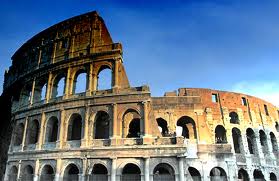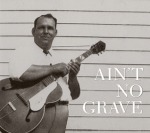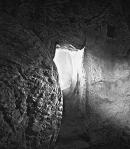Johnny Cash and Luther Dickinson: Ain’t no Grave
Left: Rev. Gary Davis
Songs about death and dying are common in the blues. Not surprising, given the toughness of life for African Americans in the southern states under Jim Crow during the early decades of the twentieth century when the blues grew up. Infant mortality was high, life expectancy low, disease common and healthcare practically non-existent for many. So death was an ever-present reality – families losing children, children losing a mother or father, neighbors aware of the pain of bereavement suffered by their friends. Today we expect our full three-score years and ten and then some, and until we start heading towards that point, most of us don’t have to attend too many funerals. But, sooner or later, we all have to face it – “I gotta walk that lonesome valley, I gotta walk there by myself, Ain’t no one can walk there for me, I gotta walk there for myself.”
The reality of death in the early days of the blues is highlighted by the traditional song, sung by Rev. Gary Davis and many others since, Death Don’t Have No Mercy. It’s a particularly mournful blues, as befits its subject matter:
Death don’t have no mercy in this land,
He’ll come to your house, he won’t stay long
Look in the bed and find your mother is gone – Death don’t have no mercy in this land.
The song covers all the family members – mother, father, sister and brother and says starkly: “Death will leave you standin’ and cryin’ in this land.” Those of us who have lost those near and dear to us know the numbness that comes when we’re left “standin’ and cryin.”
Here’s a version of the song done by Jorma Kaukonen and Hot Tuna:


Ain’t No Grave has been recorded by Odetta, recently by Charlie Parr andCrooked Still (featuring in the vampire TV series True Blood) and, of course, famously by Johnny Cash on his American VI album, released not long after he died. The album is a record of Cash’s faith during the last months of his life.
Claude Ely’s original version of the song is bright and jaunty, whereas Cash’s is sombre, sung by a man who knows he’s approaching the moment of truth – and yet it still manages to capture the essence of defiant hope that infuses the song.
Rick Rubin, who produced the album recollects a conversation in May 2003 with Johnny Cash soon after his wife June had died:

…He sounded so weak, so beaten, and I’d never really heard him like that before. I’m not sure where the question came from, but I said, ‘Do you feel like somewhere you can find faith?’ And when he heard that word, a switch went off in his head, and he answered in a strong voice, ‘My faith is UNSHAKABLE.’ And the conversation changed after that. So he had tremendous faith, he didn’t really have fear and he already was dealing with pain; I think he had acceptance. When he knew he was going to die, he was calm and matter of fact about it, and…that was it.”
Johnny Cash died in September of that year, sustained by the faith expressed in Ely’s song:
There ain’t no grave can hold my body down.
There ain’t no grave can hold my body down.
When I hear that trumpet sound
I’m gonna rise right outta the ground
Ain’t no grave that can hold my body down.
Well look way down the river and what do you think I see?
I see a band of angels and they’re coming after me.
There ain’t no grave that can hold my body down.
There ain’t no grave can hold my body down.
Cash’s voice is that of an old man, and yet is clear and convincing over the sparse instrumentation. The recording is both sobering and powerful.
The CD was released in May 2004, three days before what would have been Cash’s 78th birthday. A video to accompany the song was created with the help of professional and amateur artists, and fans of Johnny Cash. Within four months a quarter of a million people had contributed illustrations:
In some ways, the video attests to the enduring power of art and the fact that Johnny Cash lives on through the legacy of music he has left. That wasn’t what the song meant to Cash, however. An integral part of Cash’s Christian faith was the hope of resurrection. This has been the case since the very earliest days of Christianity. Within twenty years or so of the first Easter, Paul the apostle told the Jesus-followers in Corinth – “if the Messiah has not been resurrected, then your faith is useless.” Paul didn’t think there was much point in following someone who had simply brought a new philosophy to the 
Finally, here’s a terrific updated version of Ely’s song, written by Luther Dickinson after the death of his father – Ain’t No Grave.
When that day comes, when death comes my way
I would hope to be as brave
As he was on judgment day.
First published at http://downatthecrossroads.wordpress.com




